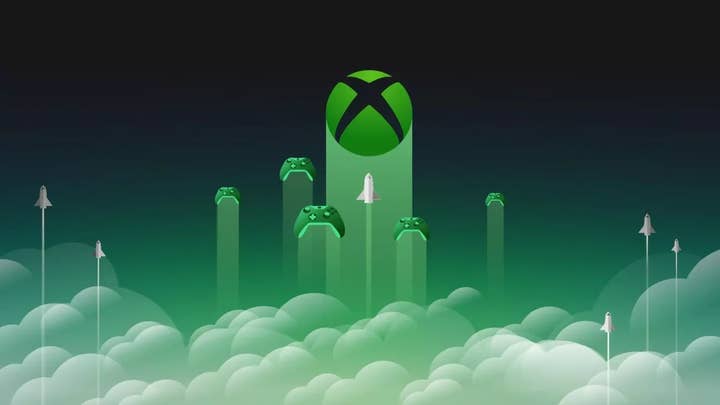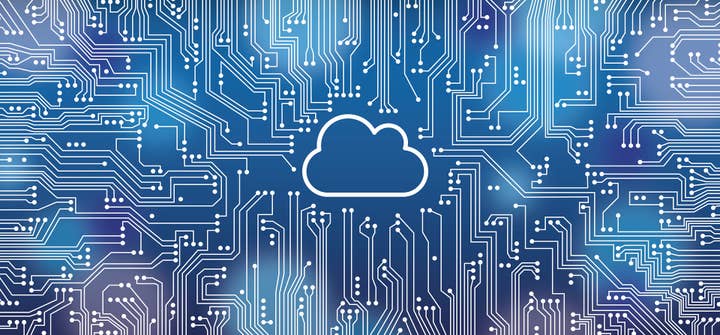Cloud gaming stalls Microsoft-ABK deal, but how big will it be?
Analysts weigh in on whether streaming will become the primary format for video games, and whether one company can dominate that market
Sign up for the GI Daily here to get the biggest news straight to your inbox
Cloud gaming has become the sticking point for the biggest acquisition in the history of the games industry.
While much of the initial furore was centred around whether Microsoft would make Call of Duty exclusive to Xbox, regulators' concerns about the proposed acquisition of Activision Blizzard have instead settled on the potential impact on competition in the cloud gaming space.
The UK's Competition and Markets Authority believes owning Activision Blizzard and its portfolio, including Call of Duty, will make Microsoft a dominant force in the cloud gaming market, and these are the primary grounds for its decision to block the deal.
The European Commission disagrees, believing Microsoft's remedies of offering free licences to players who wish to play Activision titles they own on the cloud services of their choice – and free licences to cloud services that wish to enable this – will ensure competition in the cloud gaming market remains open.
Either way, the argument centres around the assumption that cloud gaming will become the primary avenue (or at least a significant avenue) through which consumers access video games in the future.
We spoke to leading analysts to get their thoughts on whether this is possible, or even likely, and the implications that has for the industry.
What is the 'cloud gaming market'?
It's first important to define whether 'cloud gaming' is a market in itself. While all the analysts we spoke to agree on the definition of cloud gaming as a distribution method – streaming video games without the need for specialised hardware – there is debate as to whether that constitutes a market in itself.

Ampere Analysis' Piers Harding-Rolls says it depends how you segment the market, since streaming distribution is a technology rather than a business model and there are different approaches to cloud gaming. Ampere focuses on 'pure-play' cloud gaming services in its analysis – i.e. services that only offer streaming, regardless of the business model. This discounts offerings such as Xbox Game Pass and PlayStation Plus where the option to stream games is a value-added functionality.
Joost Rietveld, associate professor in the department of Strategy & Entrepreneurship at the UCL School of Management, is very clear on the matter: "We cannot consider cloud gaming a distinct market."
He points to the different types of services: those where cloud streaming is an additional feature (e.g. Xbox Game Pass, PS Plus); those that are an alternative way to access games owned on another platform (e.g. Nvidia's GeForce Now); those that sell cloud streaming solutions to business customers (e.g. Ubitus, GameStream); and those that offer cloud gaming as a platform (e.g. Google Stadia, Amazon Luna).
Analysts also add that cloud gaming is not in its infancy – some will remember the launches of Gaikai and OnLive in 2008 and 2009 respectively. Rietveld says the fact that many previous services, even recent ones like Stadia, have disappeared shows how cloud streaming "has really struggled to take hold" in games.
Will cloud streaming have the same impact on gaming?
Harding-Rolls observes that the ability to stream music and video has "completely transformed the entertainments markets" – but adds that there are some key differences when those media are compared to video games.
"Streaming games to a wide audience is much more expensive and more technically challenging," he explains. "The long-term commercial viability of GPU-instances and streaming games has yet to be really proven on a significant scale. 70% of spending on games content is through in-game monetisation, which makes it highly unlikely that we will see the dramatic shift to subscription dominance that streaming has enabled in the entertainment space."
"Competitive outcomes at the platform level are not decided over a single game or even a single publisher"
Joost Rietveld, UCL School of Management
Few analysts believe cloud streaming will change the games business in the same way it has music and video. Rietveld elaborates on the distinct differences inherent to video games, starting with the fact they take longer to complete than films, TV series or music – as such, consumers generally consume fewer gaming products.
"Games are also more technically demanding products than music and video given that the signal goes both ways," he says. "Issues concerning input lag are well-documented, but this also implies that scaling up the required infrastructure is a lot more demanding from a cost and technological perspective.

SJN Insights' Sam Naji adds that, while there are technological differences, these limitations are not the sole reason cloud gaming has yet to take off. He points to how people praised Google's Stadia for its low latency and convenience, and yet adoption was "painfully low." The reason, he argues, is because cloud gaming is "not how the vast number of gamers want a digital relationship with their game content."
The overall relationship players have with video games is also different, with Naji observing: "Gaming has a sense of tribalism to it that is less evident with television shows or music streaming solutions. Brand loyalty from the gaming community is a serious thing and there is an ethereal feeling of tribalism from owning a particular brand of console that sits under the TV."
He adds that gamers are not as comfortable with streaming services (yet?) as they are in the realms of music and video. "What if the server goes down or the game gets pulled from the cloud service? That level of trust has not yet been earned."
Has the rise of cloud streaming in other forms of entertainment affected consumer expectations for gaming?
While the impact of Spotify and Netflix on consumers' gaming expectations is hard to quantify, Niko Partners' Daniel Ahmad observes the advances in online gaming and digital distribution have increased consumer demand for interoperability.

"Gamers now expect to be able to have instant access to games they own, play them on any device, carry over save data, and maintain a friends list," he explains. "While cloud gaming is not a fundamental requirement for these experiences, it is one way that game companies can meet those consumer expectations."
Kantan Games' Dr Serkan Toto notes that the way other entertainment verticals monetise their cloud services is definitely changing expectations.
"Consumers have by now been conditioned to expect a buffet-like business model for TV/film and music streaming platforms that offer a whole ocean of content that can be consumed for a flat fee," he says. "It is already – and will be in the future – very difficult for cloud gaming providers to make consumers pay a-la-carte for individual titles, so subscription and cloud gaming are likely to go hand-in-hand going forward."

Would Microsoft become a dominant force in the cloud gaming space if it successfully acquired Activision Blizzard?
The CMA's concern is that Microsoft and its ownership of Activision Blizzard would become so powerful a force in cloud gaming that it will prevent the rise of other competitors and limit innovation in this space. Analysts are less convinced.

Midia Research's Karol Severin notes that Microsoft would already have a strong position in the market, enhanced by the addition of Activision Blizzard, but believes there would still be space for "a small handful of broader subscriptions." He also believes there will be room for niche offerings, using the example of Jazz-centric music subscription services or video-on-demand platforms that focus on horror films.
Ahmad agrees that Microsoft is "well positioned to succeed" in cloud gaming, thanks to its stake in cloud infrastructure, game development, game publishing and live services. But he adds that Microsoft is "not the only company" in such a position.
Toto expects Steam, Epic, Google and Apple to be "key players in a cloud gaming future," with the possibility of other entrants, such as Netflix. He adds: "To put it bluntly, I think all the small cloud game platform providers will not be around in a few years."
Rietveld says that cloud gaming "will never be dominated by a single distribution platform."
"Competitive outcomes at the platform level are not decided over a single game or even a single publisher," he says. "Both the CMA and the EC arrived at this conclusion when they analysed the hypothetical scenario of Microsoft withdrawing Call of Duty from PlayStation consoles."
He adds that not only can Microsoft's remedies of free licences around Activision games on cloud services "legitimize the nascent sector that has historically struggled to attract games from high-profile publishers and developers," it will also likely increase demand for these services and expand the market for cloud gaming.
Will cloud gaming become the primary distribution channel for video games?
The $69 billion question is whether cloud gaming will become the, or even a, main method by which consumers play video games. Toto says this is inevitable.
"I believe the hurdles are mostly of technical nature -- latency, slow or spotty Wi-Fi connections even in developed countries, need for high-spec hardware at large scale by cloud gaming providers, and so on," he says. "My prediction is that it will take until the 2030s until the technology will meet complete acceptance by players worldwide."
Severin agrees, adding: "It has a realistic chance of becoming the dominant way we play games. The value exchange proposition is too strong for consumers to resist and companies with deep pockets have lots of reasons to drive this movement forward. In my opinion, 3-5 years or until it hits critical mass – 25% to 30% of gamers – and perhaps seven to ten years until it becomes the dominant way to play."
The majority of the analysts we speak to, however, disagree.
"If the future is cloud-based gaming, then it's going at a snail’s pace in commercial terms"
Sam Naji, SJN Insights
Ahmad believes cloud gaming will be "additive to the existing market" in the short to medium term, but says it is unclear how much potential there is for the model beyond the core gamer audience.
"The particular beneficiary audience is those with lower disposable income, where buying a console or high-end hardware is simply out of reach," he says. "Cloud gaming… is a way to open the market to many people. [But] the point at which non-gamers enter the games market via cloud gaming is sometime in the future."
Naji emphasises how small the market currently is, citing research firm Omdia's estimates of $12 billion in cloud gaming revenues by 2026 – this, he says, would still be just 6% of total consumer spending on video games. He also adds that the only concrete figure for how many people use a cloud gaming service is Nvidia's 20 million subscribers to GeForce Now (there's no way of knowing how many of Xbox Game Pass' 25 million subscribers use Xbox Cloud Gaming).

"Nvidia and Microsoft are trying to build a future for cloud gaming but even they must know that it is easier said than done," he says. "20 million subscribers may sound high but when compared to the 232 million Netflix subscribers and 162 million Disney+ subscribers, cloud gaming subscriptions may have some way to go… If the future is cloud-based gaming, then it's going at a snail’s pace in commercial terms."
He concludes by adding that "so many stars will have to align" before cloud gaming can become the dominant form of consumption for video games. The services will need zero latency. Publishers will want a way to make as much money as possible from each game streamed. Cloud server costs and rental of servers will need to be as minimal as possible. There will need to be tighter security on the use of user data and metadata. Players will need reassurances that games will continue to be supported in the long-term and, ideally, a way to consolidate their libraries when it comes to games bought from multiple publishers.
And, crucially, cloud gaming will need to offer a better and/or significantly different experience when compared to owning or playing a console.
"Most of these factors can be solved in time," Naji says, "but ultimately it will require the next generation of gamers to feel that the current method of game ownership and access is antiquarian, expensive and inefficient."
Sign up for the GI Daily here to get the biggest news straight to your inbox

